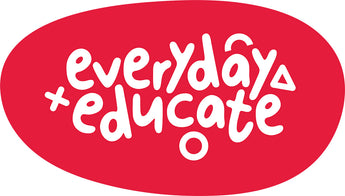As a parent, you want to provide your child with every opportunity to succeed in life. And one of the most powerful tools you can give them is the gift of curiosity. By encouraging your child to explore and learn, you can help them develop critical thinking skills, creativity, and a lifelong love of learning. In this article, we'll explore some effective strategies you can use to foster your child's natural curiosity and set them up for a bright future.
Why is curiosity important for a child's development?
Curiosity is the driving force behind learning. When children are curious, they are more engaged and motivated to explore the world around them. This curiosity can lead to a deeper understanding of concepts and ideas, as well as a greater sense of creativity and problem-solving skills. Curious children are also more likely to take risks and try new things, which can help them build resilience and confidence.
Encourage exploration
One of the best ways to foster curiosity in children is to encourage them to explore the world around them. Provide opportunities for your child to discover new things and try new experiences. This could include taking nature walks, visiting museums or science centers, or simply encouraging them to ask questions about the world around them.
Provide resources
To foster curiosity, it's important to provide your child with the resources they need to explore and learn. This could include books, toys, art supplies, or even technology such as educational apps or online resources. By providing your child with these tools, you can help them develop a love of learning and a sense of independence.
Model curiosity
Children learn by example, so it's important to model curiosity yourself. Ask questions, explore new ideas, and demonstrate a love of learning in your own life. By showing your child that learning is a lifelong process, you can inspire them to continue to explore and learn throughout their lives.
Allow for free play
Free play is an important part of a child's development. It allows them to explore their own interests and passions, and to develop problem-solving skills and creativity. Encourage your child to engage in unstructured playtime, whether that's building with blocks, playing dress-up, or simply exploring their surroundings.
Emphasize the process over the outcome
When encouraging your child's curiosity, it's important to focus on the process rather than the outcome. Encourage them to ask questions, explore ideas, and try new things, even if they don't always succeed. By emphasizing the process of learning rather than the end result, you can help your child develop a love of learning and a willingness to take risks.
Encourage critical thinking
Curiosity and critical thinking go hand in hand. Encourage your child to ask questions, analyze information, and think critically about the world around them. This could involve discussing current events, debating ideas, or simply asking open-ended questions.
Support creativity
Creativity is an important part of curiosity. Encourage your child to express themselves creatively, whether that's through art, music, writing, or other forms of self-expression. By supporting their creativity, you can help them develop a sense of confidence and a love of learning.
Provide opportunities for problem-solving
Problem-solving is an important skill for any child to develop. Encourage your child to tackle problems and find solutions, whether that's through puzzles, games, or real-life situations. By providing opportunities for problem-solving, you can help your child develop a sense of confidence and resilience.
Foster a love of reading
Reading is one of the best ways to foster curiosity in children. Encourage your child to read regularly, whether that's through books, magazines, or online resources. By exposing them to a wide variety of topics and ideas, you are expanding their cognitive mind & helping them grow.
Celebrate curiosity
When your child shows curiosity, celebrate it! Encourage their questions and interests, and praise their efforts to explore and learn. By celebrating curiosity, you can help your child develop a sense of pride in their own abilities and a love of learning.
Conclusion
Fostering your child's natural curiosity is one of the best things you can do to set them up for a bright future. By encouraging exploration, providing resources, modeling curiosity, allowing for free play, emphasizing the process, encouraging critical thinking, supporting creativity, providing opportunities for problem-solving, and fostering a love of reading, you can help your child develop the critical thinking skills, creativity, and resilience they need to succeed in life.
FAQs
- Why is curiosity important for a child's development?
- Curiosity is important because it leads to deeper understanding, creativity, problem-solving skills, and a love of learning.
- How can I encourage my child to be curious?
- Encourage exploration, provide resources, model curiosity, allow for free play, emphasize the process, encourage critical thinking, support creativity, provide opportunities for problem-solving, and foster a love of reading.
- What are some examples of resources I can provide to foster curiosity?
- Books, toys, art supplies, educational apps, and online resources are all great resources to provide.
- How can I support my child's creativity?
- Encourage self-expression through art, music, writing, or other forms of creativity.
- What is the best way to celebrate my child's curiosity?
- Encourage their questions and interests, and praise their efforts to explore and learn.



 Chat with Us
Chat with Us